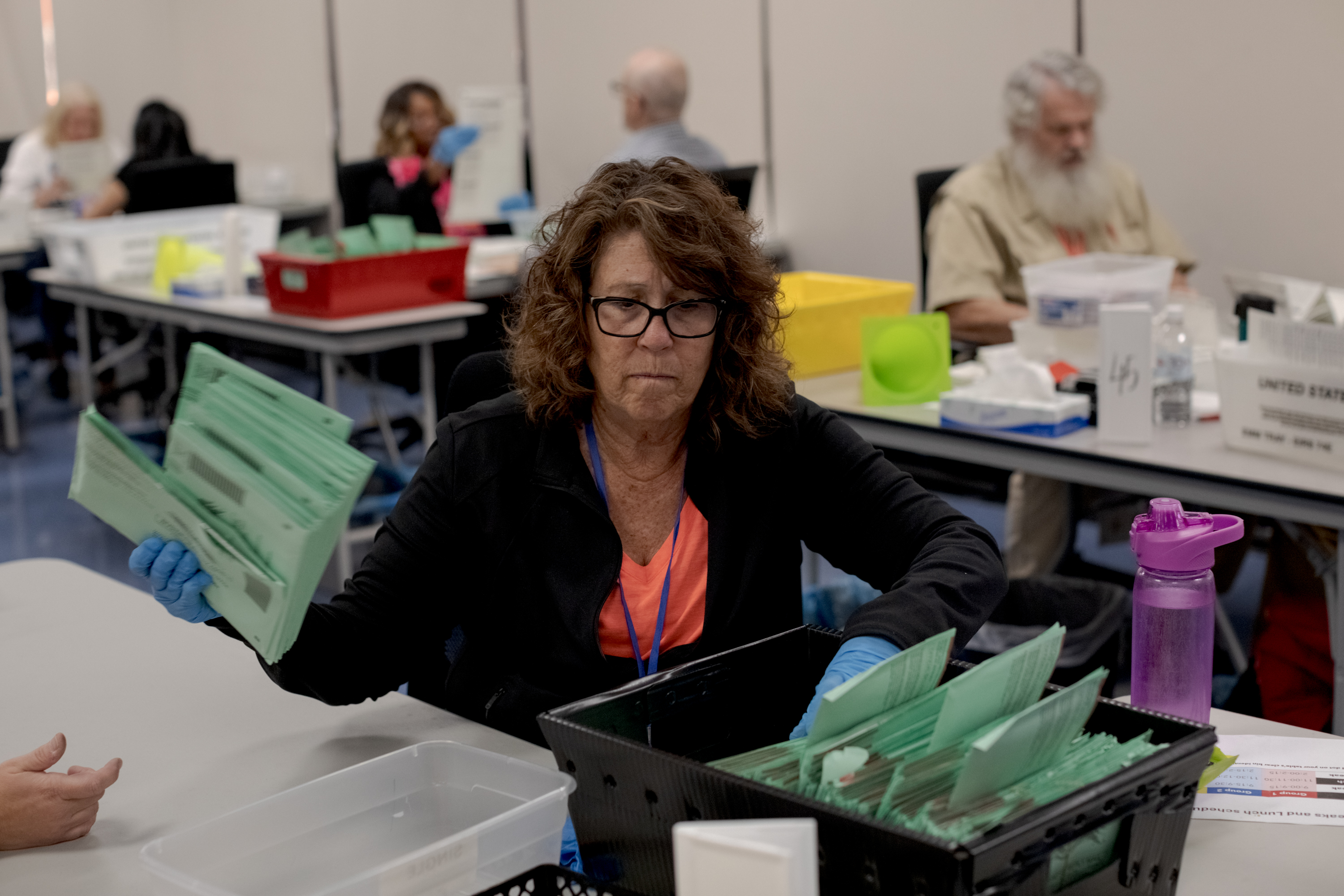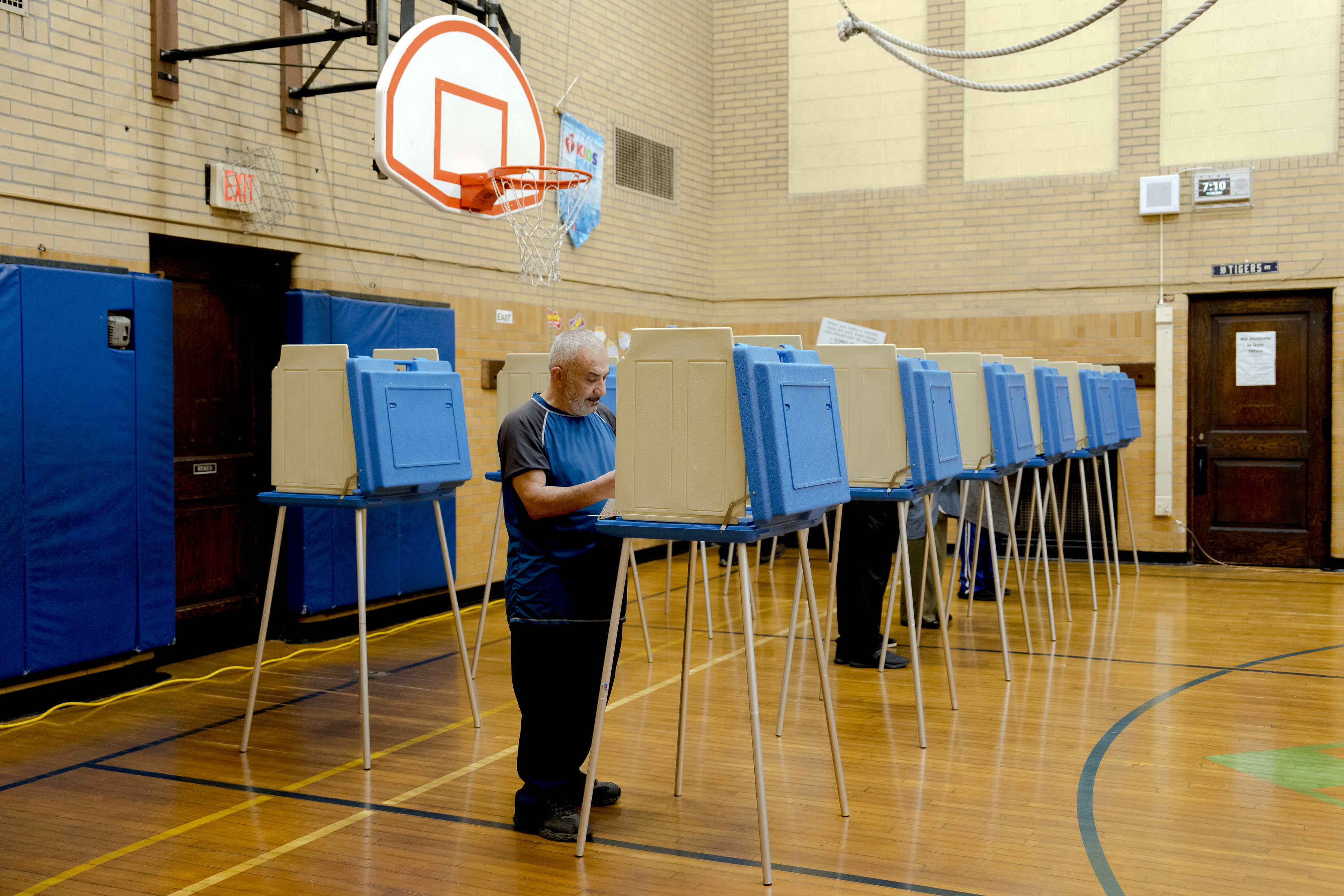Trump's Anti-DEI Order Linked to Election Security Funds in New Grant Scheme

Election authorities are proposing that states should commit to adhering to President Donald Trump’s orders limiting diversity, equity, and inclusion initiatives as part of the requirements for obtaining $15 million in funds aimed at securing elections.
The updated criteria for these grants have caused Democratic Secretaries of State across the country to hurriedly evaluate the fiscal, legal, and practical consequences of receiving funds from the non-partisan U.S. Election Assistance Commission.
The controversy has been further muddled by the ambiguity of the updated federal grant conditions, causing concern among certain state officials who worry these might backfire. While the stipulations require states to adhere to federal nondiscrimination regulations, they also reference an executive order issued under the Trump administration concerning Diversity Equity Inclusion (DEI) policies, which Democrats do not support.
The Maine Secretary of State, Shenna Bellows (D), whose state is currently embroiled in a conflict with Trump regarding legislation concerning transgender athletes, plans to decline approximately $273,000 instead of signing an accord she believes might compel her to adhere to the DEI directive. In Colorado, Secretary of State Jena Griswold (D) is evaluating the stipulations alongside legal counsel and appears inclined towards turning down the funds rather than accepting the terms, as stated by someone privy to her considerations but speaking anonymously due to the sensitivity of discussing internal debates.
Other Secretaries of State have concerns that using these funds might place them at risk legally if federal authorities subsequently found that employee appointments, programs, or contracts violated the specified terms and conditions. According to three Secretaries, they are contemplating contesting the commission’s stipulations in court.
I'm troubled by the introduction of new terms and conditions focused on diversity, equity, and inclusion within election security funding," Bellows stated during an interview. "It’s inappropriate to tie these funds, approved by Congress, to a presidential political agenda. This kind of politicization has never occurred previously.
The concern about funding arises as the Trump administration has dismantled significant parts of the federal government’s primary safeguard against external meddling in U.S. elections. In February, Attorney General Pam Bondi disbanded an FBI task force established after Russian intervention in the 2016 presidential race, which aimed to expose clandestine activities by Russia, China, Iran, and other foreign entities attempting to sway American voters. Additionally, the Department of Homeland Security placed at least seven federal workers, part of teams focused on thwarting foreign misinformation within the election security division of the Cybersecurity and Infrastructure Security Agency, on administrative leave.
Several state and local election administrators have indicated that stepping back from federal support diminishes their capacity to safeguard voting systems amid increased threats. Over the years, these jurisdictions have depended on funds provided via the Help America Vote Act to defend against both external and internal cybersecurity breaches, enhance the precision of voter registration databases, and conduct audits ensuring adherence to protocols and valid electoral results.

The grants offer states significant financial support for purchasing equipment and covering personnel costs, though these amounts have diminished over time. Initially, during the onset of the COVID-19 pandemic in 2020, Congress allocated $825 million in security grants along with additional election funding. This amount drastically fell to $55 million by 2024 and has further declined to just $15 million currently.
This year, most states will get approximately $273,000; however, California, Florida, and Texas qualify for larger amounts due to their substantial population sizes.
At last week's meeting of the Election Assistance Commission’s standards board, state election officials discovered that to qualify for the election security grants, they needed to submit their applications by last Friday along with an agreement stating they do not run "any initiatives supporting DEI" that contravene federal nondiscrimination statutes.
The documents also referenced Trump’s January 21 "Ending Illegal Discrimination and Restoring Merit-Based Opportunity" executive order. This directive was intended to abolish what the administration considered illegal diversity, equity, and inclusion initiatives both within the federal government and the private sector. A federal judge based in Maryland has taken action on this matter. blocked parts of the order as he explores potential legal objections to it.
Following opposition from state officials, the commission informed the states on Friday that they were reassessing the grant terms and conditions.
“More information will be provided soon,” said an email from the commission that was obtained by The Washington Post.
A representative from the commission did not address inquiries regarding the grants. The White House stated that it was logical to require states to adhere to anti-discrimination statutes when receiving federal funding for elections.
Making state secretaries personally certify that their whole offices fulfill these significant diversity, equity, and inclusion requirements to get federal funds is concerning," stated Griswold, who is serving her second term and is now campaigning for Colorado’s attorney general position. "The wording is unclear, and we have no idea what it entails. Naturally, my office supports a varied team; it makes us stronger and enhances Colorado as well.
She said the Trump administration was trying to leverage the grant money to try to “usurp” state authority over elections. She and other secretaries of state argue that Trump doesn’t have the power to change the terms for the grants because Congress has authorized funding for all states with few strings.
The Oregon Secretary of State, Tobias Read (D), mentioned that he was prepared for the Trump administration to attach conditions to federal funds.
I remain doubtful, as all Americans should," Read stated in a written statement. "It escapes me how cultural warfare has any connection to securing elections. My office is currently assessing the effects of losing these grants on our capacity to safeguard Oregon’s electoral process. This preparation was necessary due to actions taken by the Trump Administration aimed at making our elections more susceptible, particularly within states that didn’t support him.
Authorities in the battleground states of Michigan and Wisconsin mentioned that they are currently examining the grant papers and have yet to make any decisions. The Secretary of State's office reports that Georgia intends to submit an application for the grant but believes it won’t require altering current operations to adhere to the updated conditions.
In politically competitive Arizona, Secretary of State Adrian Fontes (D) said he is weighing his options. For years, Fontes has asked the GOP-controlled legislature and Democratic governor to provide more election security funding as federal funds have become less certain.
Fontes questioned whether anyone had clearly defined DEI within the grant documents, adding, "Am I meant to take a wild guess and risk exposure to possible legal pitfalls in this risky guessing game?" He then pondered, "Should I simply decline and withhold vital resources needed by Arizona from federal aid? It’s quite a difficult choice."
New Mexico Secretary of State Maggie Toulouse Oliver (D) said her office needs all the resources it can get. But, she worries that taking the money under the current terms could compromise other areas of her office’s operations.
“Does this implicate just what we’re spending this money on?” she asked. “Or does it implicate everything we’re doing?”
0 Response to "Trump's Anti-DEI Order Linked to Election Security Funds in New Grant Scheme"
Post a Comment